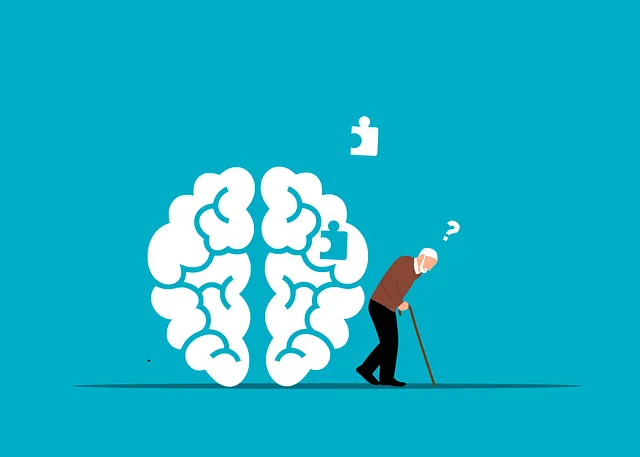The Denver Kaiser Programs (DKP) offer a holistic, structured approach to mental illness diagnosis and treatment. By integrating physical assessments, environmental factors, and evidence-based therapies like CBT and mindfulness, DKP enables personalized care, enhanced communication, and emotional healing. Their programs empower individuals to build resilience, reduce anxiety and depression symptoms, and develop effective coping mechanisms for sustainable recovery.
“Mental illness diagnosis and treatment navigation can be complex, but understanding the process is crucial for a successful recovery. This article offers a comprehensive guide using the Denver Kaiser Programs as a framework, helping you navigate mental health care with confidence. We’ll explore strategies for understanding diagnoses, selecting effective treatments based on best practices from Denver Kaiser Mental Health Programs, and building resilience through empowering coping mechanisms. By the end, you’ll be equipped to take control of your mental well-being.”
- Understanding Mental Illness Diagnosis: A Comprehensive Guide using Denver Kaiser Programs as a Framework
- Navigating Treatment Options: Strategies for Success based on Best Practices from Denver Kaiser Mental Health Programs
- Building Resilience and Coping Mechanisms: Empowering Yourself through Denver Kaiser Program-Inspired Techniques
Understanding Mental Illness Diagnosis: A Comprehensive Guide using Denver Kaiser Programs as a Framework

Understanding Mental Illness Diagnosis is a complex yet crucial process that involves comprehensive assessment and specialized tools. The Denver Kaiser Programs (DKP) offer an excellent framework for this, providing a structured approach to evaluating and diagnosing mental health conditions. This systematic method ensures that professionals consider various factors, including symptoms, severity, duration, and impact on daily functioning. By following the DKP guidelines, healthcare providers can accurately identify disorders such as depression, anxiety, bipolar disorder, schizophrenia, and personality disorders.
The programs emphasize a holistic view of mental wellness, encouraging practitioners to integrate physical health assessments and explore potential environmental influences. This inclusive perspective is vital as it allows for personalized treatment plans that address not just symptoms but also underlying causes. Moreover, the DKP framework facilitates effective communication between patients and clinicians, fostering trust and engagement in the diagnostic process. This collaborative approach is key to successful navigation of mental illness diagnosis and subsequent treatment planning, often involving Stress Management Workshops Organization-led initiatives like Mindfulness Meditation and Crisis Intervention Guidance.
Navigating Treatment Options: Strategies for Success based on Best Practices from Denver Kaiser Mental Health Programs

Navigating treatment options for mental health can feel overwhelming, but Denver Kaiser Mental Health Programs offer proven strategies for success. Their best practices emphasize a holistic approach, considering not just symptoms, but also individual needs and preferences. By integrating various therapeutic modalities, such as cognitive behavioral therapy (CBT), mindfulness-based interventions, and support groups, these programs empower individuals to manage their conditions effectively.
One key aspect is fostering emotional healing processes through safe spaces where individuals can express themselves freely. Additionally, anxiety relief techniques and confidence-boosting activities play a crucial role in the recovery journey. Denver Kaiser’s comprehensive resources and dedicated professionals guide clients towards sustainable well-being, ensuring they receive tailored care that addresses both the mind and spirit.
Building Resilience and Coping Mechanisms: Empowering Yourself through Denver Kaiser Program-Inspired Techniques

Navigating mental illness can be overwhelming, but building resilience is a powerful tool for coping and recovery. The Denver Kaiser Program offers evidence-based strategies to empower individuals in their mental health journey. By incorporating techniques from this program, one can enhance self-awareness and develop effective coping mechanisms.
Stress Management Workshops Organization often focuses on mindfulness meditation and Self-Awareness Exercises, which have been shown to reduce symptoms of anxiety and depression. These practices encourage a more mindful approach to daily life, helping individuals stay grounded and better manage their mental health. Through regular practice, one can build resilience, fostering a sense of control and empowerment in facing challenges.
The Denver Kaiser mental health programs have provided a comprehensive framework for understanding and navigating mental illness. By combining diagnostic accuracy with evidence-based treatment options, these programs offer valuable strategies for success. Incorporating resilience-building techniques inspired by the Denver Kaiser approach empowers individuals to take control of their mental well-being. This holistic navigation assistance ensures that those facing mental health challenges have the tools and knowledge needed to achieve long-term stability and improved quality of life.






